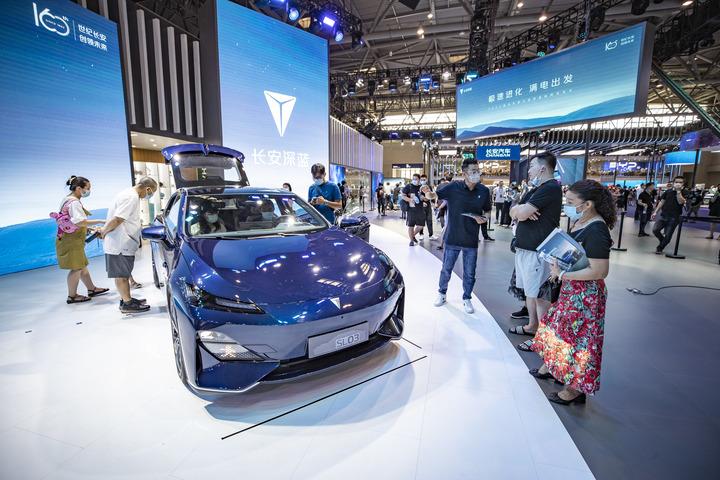BEIJING, July 7 (Xinhua) -- China's automobile market is picking up growth pace as supportive policies spur retail and wholesale sales, lending steam to the country's consumption recovery from COVID-19 jitters.
Some 1.92 million passenger cars were sold via retail channels in June, up 22 percent year on year and up 42 percent over May, initial statistics from the China Passenger Car Association (CPCA) showed Wednesday.
Wholesales of passenger cars topped 2.11 million units last month, up 37 percent year on year.
The strong auto sales also drove up production with the car-making industrial chain restoring production to its usual capacity. Many carmakers, especially new energy vehicle market players, reported soaring output.
Guangzhou Automobile Group Co., Ltd. said its automobile output reached 232,500 units in June, up 42.12 percent year on year. Leading NEV manufacturer BYD's June output skyrocketed over 200 percent over one year ago.
The robust June auto production and sales data came after a slump in May as COVID-19 outbreaks earlier this year weighed upon China's auto market.
Data from the China Association of Automobile Manufacturers showed that production and sales of passenger vehicles in the first five months of this year fell 1.1 percent and 3.6 percent year on year respectively.
With some 310 million cars owned by residents, China is the world's largest automobile market. Auto sales matter much to the country's consumption, a key growth pillar for the world's second-largest economy. In 2021, retail sales of automobiles and related products accounted for 9.9 percent of the country's retail sales of social consumer goods.
To stimulate auto sales and China's consumption at large, the government decided in late May to halve the car purchase tax for passenger vehicles priced at no more than 300,000 yuan (about 44,790 U.S. dollars) and with 2-liter or smaller engines, which will last from June 1 to the end of the year.
Some 1.09 million cars enjoyed China's car purchase tax cut during the first month of the policy's implementation, saving about 7.1 billion yuan for car buyers, according to the country's top taxation agency.
"The car purchase tax cut policy is a silver bullet for stimulating consumption," said Cui Shudong, secretary with CPCA. "It can bring additional sales of about 2 million cars."
In the country's latest move to promote car sales, China's commerce ministry and other 16 government agencies Thursday unveiled a slew of steps to expand car consumption, including facilitating the free flow of new energy cars among different regions, scraping unreasonable regulations on second-hand vehicle sales, increasing parking lots and charging stations, and boosting parallel imports of cars.
"These measures are targeted and practical, aiming to remove some institutional obstacles that have long restricted the development of automobile sales," said Sheng Qiuping, China's vice commerce minister.
"Automobile consumption is expected to achieve rapid growth in the second half of the year and play a positive role in keeping economic growth stable," Sheng estimated.




 A single purchase
A single purchase









